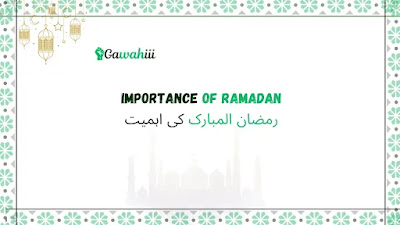Sunnah of Ramadan Fasting
Suhri:
Ramzan ki Ahmiyat The Holy Prophet (peace and blessings of Allah be upon him) said: There is a blessing in Suhri, never leave it! If nothing else, then drink a sip of water at that time, because Allah Almighty has mercy on those who eat and drink Suhri and the angels pray for them. (Musnad Ahmad, Ma’rif al-Hadith)
Iftar:
It was narrated from Abu Hurairah (may Allah be pleased with him) that the Messenger of Allah (peace and blessings of Allah be upon him) said: Allah Almighty said: The most beloved of My servants to Me is the one who is the one who is the one who hastens to break his fast, i.e. does not delay at all after sunset. (Jami’ al-Tirmidhi, Ma’rif al-Hadith)
It was narrated from Salman bin Amir (may Allah be pleased with him) that the Messenger of Allah (peace and blessings of Allah be upon him) said: When one of you is fasting, he should break his fast with dates, and if he cannot find dates, then he should break his fast with water, because Allah Almighty has made water pure. (Musnad Ahmad, Abu Dawud, Jami’ Tirmidhi, Ibn Majah, Ma’rif al-Hadith)
It was narrated from Anas (may Allah be pleased with him) that the Messenger of Allah (blessings and peace of Allah be upon him) would break his fast with a few fresh dates before the Maghrib prayer, and if there were no fresh dates, he would break his fast with dry dates, and if there were no dry dates, he would drink a few sips of water. (Jami’ Tirmidhi)
It was narrated from Abdullah bin Umar (may Allah be pleased with him) that when the Messenger of Allah (blessings and peace of Allah be upon him) would break his fast, he would say: The thirst has been quenched, the veins have become wet, and the reward has been established, if Allah wills (The thirst has been quenched, the veins have become wet, and the reward has been established, if Allah wills). (Sunan Abu Dawud, Ma’rif al-Hadith)
It was narrated from Mu’adh bin Zuhairah al-Tabi’i that he said: I have heard that when the Messenger of Allah (ﷺ) used to break his fast, he would say: Allahumma laka sumtu wa ‘ala rizqi ka aftartu (O Allah! I have fasted for You and I have broken my fast with Your provision). (Sunan Abu Dawud, Ma’rif al-Hadith)
Reciting the Holy Quran:
It is a Sunnah to recite the Quran once in sequence in Taraweeh during Ramadan. If this is not possible for the followers due to some excuse, then ten Surahs should be recited from Al-Im Tarkeef to the end. There should be one Surah in each Rak’ah, then after completing ten Rak’ahs, the same Surahs should be recited again, or other Surahs can also be recited. (Beheshti Gohar)
Performing Taraweeh for the entire month:
It is Sunnah to perform Taraweeh for the entire month of Ramadan, even if the Quran is completed before the end of the month. For example, if the entire Quran is read in fifteen days, then performing Taraweeh in the remaining days is also a confirmed Sunnah. (Beheshti Zeyor)
Congregation in Taraweeh:
Congregation in Taraweeh is Sunnah ali kifayah, even if one Quran has been completed in congregation. (Beheshti Gohar)
Performing Taraweeh in two rak’ahs:
Taraweeh should be performed in two rak’ahs. After four rak’ahs, one should pause for the time spent in prayer, but the time can be reduced with due consideration for the followers. (Beheshti Zeyor)
Number of Taraweeh:
It is narrated from Ibn Abbas (may Allah be pleased with him) that the Prophet (peace and blessings of Allah be upon him) used to perform twenty rak’ahs and witr in Ramadan. (Majma’ al-Zawa’id, with reference to Nazarani)
Although the chain of transmission of this hadith is weak, since the companions and the followers have been continuously acting upon it, this hadith is acceptable according to the principles of the hadith scholars and jurists. It is narrated from Sa’ib bin Yazid and Yazid bin Roman (may Allah be pleased with them) that during the time of Umar (may Allah be pleased with them) the companions used to pray twenty rak’ahs of Taraweeh. (Bayhaqi, Athar al-Sunan, with reference to Muwatta’ Imam Malik)
Dhikr between Taraweeh:
The famous dhikr after every four rak’ahs between Taraweeh is not found in any hadith. However, Allama Shami (may Allah have mercy on him) has narrated with reference to Qahistani and Manbaq al-Ibad that this dhikr should be done after every Tareeyyah. (Qahistani, Manbaq al-Ibad)
رمضان کے روزوں کی سنتیں
سحری:
حضور صلی اللہ علیہ وسلم کا ارشاد گرامی ہے کہ سحری میں برکت ہے، اسے ہرگز نہ چھوڑو! اگر کچھ نہیں تو اس وقت پانی کا ایک گھونٹ ہی پی لیا جائے کیونکہ سحری میں کھانے پینے والوں پر اللہ تعالی رحمت فرماتا ہے اور فرشتے ان کے لیے دُعائے خیر کرتے ہیں۔ (مسند احمد، معارف الحدیث)
افطار:
حضرت ابو ہریرہ رضی اللہ عنہ سے روایت ہے کہ رسول اللہ صلی اللہ علیہ وسلم نے فرمایا کہ اللہ تعالی کا ارشاد ہے کہ اپنے بندوں میں مجھے وہ بندہ زیادہ محبوب ہے جو روزہ کے افطار میں جلدی کرے، یعنی غروب آفتاب کے بعد بالکل دیر نہ کرے۔ (جامع ترمذی، معارف الحدیث)
حضرت سلمان بن عامر رضی اللہ عنہ سے روایت ہے کہ رسول اللہ صلی اللہ علیہ وسلم نے ارشاد فرمایا کہ جب تم میں سے کسی کا روزہ ہو تو وہ کھجور سے افطار کرلے اور اگر کھجور نہ پائے تو پھر پانی ہی سے افطار کرے، اس لیے کہ پانی کو اللہ تعالی نے طہور بنایا ہے۔ (مسند احمد، ابوداؤد، جامع ترمذی، ابن ماجہ، معارف الحدیث)
حضرت انس رضی اللہ عنہ سے روایت ہے کہ رسول اللہ صلی اللہ علیہ وسلم مغرب کی نماز سے پہلے چند تر کھجوروں سے روزہ افطار فرماتے تھے اور اگر تر کھجور نہ ہوتیں تو خشک کھجوروں سے افطار فرماتے تھے، اور اگر خشک کھجور بھی نہ ہوتیں تو چند گھونٹ پانی پی لیتے تھے۔ (جامع ترمذی)
حضرت عبداللہ بن عمر رضی اللہ عنہ سے روایت ہے کہ رسول اللہ صلی اللہ علیہ وسلم جب افطار فرماتے تھے تو کہتے تھے: ذَهَبَ الظَّمَاءُ وَابْتَلَّتِ الْعُرُوقُ وَثَبَتَ الْأَجْرُ إِنْ شَاءَ اللهُ (پیاس بجھ گئی، رگیں تر ہوگئیں، اور اجر ثابت ہوگیا اگر اللہ نے چاہا)۔ (سنن ابی داؤد، معارف الحدیث)
معاذ بن زہیرہ تابعی سے روایت ہے کہ وہ کہتے ہیں کہ مجھے یہ بات پہنچی ہے کہ رسول اللہ صلی اللہ علیہ وسلم جب روزہ افطار فرماتے تھے تو کہتے تھے: اللهم لَكَ صُمْتُ وَعَلَى رِزْقِكَ أَفْطَرْتُ (اے اللہ! میں نے تیرے لیے روزہ رکھا اور تیرے رزق سے افطار کیا)۔ (سنن ابی داؤد، معارف الحدیث)
قرآن مجید کا پڑھنا
رمضان شریف میں قرآن کا ایک مرتبہ ترتیب وار تراویح میں پڑھنا سنت مؤکدہ ہے۔ اگر کسی عذر کی وجہ سے مقتدیوں کے لیے یہ ممکن نہ ہو تو الم ترکیف سے اخیر تک دس سورتیں پڑھ دی جائیں۔ ہر رکعت میں ایک سورت ہو، پھر دس رکعت پوری ہونے پر انہی سورتوں کو دوبارہ پڑھا جائے یا دیگر سورتیں بھی پڑھی جا سکتی ہیں۔ (بہشتی گوہر)
تراویح پورے مہینے پڑھنا
تراویح کا رمضان المبارک کے پورے مہینے میں پڑھنا سنت ہے، اگرچہ قرآن مجید مہینہ ختم ہونے سے پہلے ہی مکمل ہو جائے۔ مثلاً، اگر پندرہ روز میں پورا قرآن پڑھ لیا جائے تو باقی دنوں میں بھی تراویح پڑھنا سنت مؤکدہ ہے۔ (بہشتی زیور)
تراویح میں جماعت:
تراویح میں جماعت سنت علی الکفایہ ہے، اگرچہ ایک قرآن مجید جماعت کے ساتھ مکمل ہو چکا ہو۔ (بہشتی گوہر)
تراویح دو دو رکعت کر کے پڑھنا:
تراویح دو دو رکعت کر کے پڑھنی چاہیے۔ چار رکعت کے بعد اتنا توقف کرنا چاہیے جتنا وقت نماز میں صرف ہوا ہے، لیکن مقتدیوں کی رعایت کرتے ہوئے وقت کم بھی کیا جا سکتا ہے۔ (بہشتی زیور)
تراویح کی تعداد
حضرت ابن عباس رضی اللہ عنہ سے روایت ہے کہ نبی کریم صلی اللہ علیہ وسلم رمضان میں بیس رکعتیں اور وتر پڑھا کرتے تھے۔ (مجمع الزوائد بحوالہ نظرانی)
اگرچہ اس حدیث کی سند میں ایک راوی ضعیف ہے، لیکن چونکہ صحابہ کرام اور تابعین کا مسلسل عمل اس پر رہا ہے، اس لیے محدثین اور فقہاء کے اصول کے مطابق یہ حدیث مقبول ہے۔ حضرت سائب بن یزید اور یزید بن رومان رضی اللہ عنہما سے روایت ہے کہ حضرت عمر رضی اللہ عنہ کے زمانے میں صحابہ کرام بیس رکعات تراویح پڑھا کرتے تھے۔ (بیہقی، آثار السنن بحوالہ موطا امام مالک)
تراویح کے درمیان ذکر
تراویح کے درمیان ہر چار رکعت کے بعد جو ذکر مشہور ہے، وہ کسی حدیث میں نہیں ملتا۔ البتہ علامہ شامی رحمۃ اللہ علیہ نے قہستانی اور منبع العباد کے حوالے سے نقل کیا ہے کہ ہر ترویجہ کے بعد یہ ذکر کیا جائے۔ (قہستانی، منبع العباد)
سُبْحَانَ ذِي الْمُلْكِ وَالْمَلَكُوتِ . سُبْحَانَ ذِي الْعِزَّةِ وَالْعَظْمَةِ وَالفَةِ وَالْقُدْرَةِ وَالْكِبْرِيَاءِ وَالْجَبَرُوتِ ٥ سُبْحَانَ الْمَلِكِ الْحَيِّ الَّذِي نام وَلا يَمُوتُ ، سُبُوحٌ قُدُوسٌ رَبَّنَا وَرَبُّ الْمَلَئِكَةِ وَالرُّوحِ لَا إِلَهَ إِلَّا الله تنفِرُ الله نسألُكَ الْجَنَّةَ وَنَعُوذُ بِكَ مِنَ النَّارِه (شامی ص (۲۲ ج ۱)
ترجمہ: میں پاکی بیان کرتا ہوں عالم اجسام اور عالم ارواح والے کی … پاک ہے عزت و عظمت والا اور قدرت اور بڑائی اور غلبہ والا …. پاک ہے وہ بادشاہ جو زندہ ہے سوتا نہیں اور مرتا نہیں ہے بڑا پاک ہے نہایت پاک ہے ہمارا اور فرشتوں اور روح کا رب ہے۔ اللہ کے سوا کوئی مجود نہیں ہم اللہ تعالیٰ سے مغفرت چاہتے ہیں اور (اے اللہ ) ہم آپ سے جنت کا سوال کرتے ہیں اور دوزخ سے پناہ چاہتے ہیں
- Also Read
- Ramdan k Fazilat click to read


.webp)